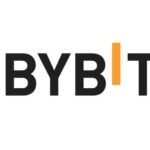It is common knowledge that many political and societal organizations are deemed to function well if the people are given a chance to make decisions and select their leaders. In the same way, decentralized financing is an effective system that prioritizes a decentralized, peer-to-peer network(p2p) where users can perform transactions and decisions directly with each other without the need for go-betweens such as the bank or other financial institutions. Therefore, the section below explains the importance and advantages of decentralized financing.
Why Decentralized Finance
Decentralized finance, particularly in light of the crash of several renowned banks and financial institutions, has been recommended for various reasons. For one, decentralized financing involves the use of smart contracts, which are built on blockchain networks. This smart contract is a ledger available to every user (distributed ledger), and it records all transactions transparently for all to secure. The distributed ledger cannot be controlled by one central authority and remains secure and impossible to change or tamper with.
Decentralized finance also has high liquidity with reasonable fees. There is no central system to control transactions or workers to be paid. Users transact with themselves directly and have total control of their funds without needing approval from a central authority. In the end, users can perform different transactions – trading, investing, borrowing, and lending, at meager fees and with little stress.
Unlike the traditional baking checks and balances, decentralized funding is available to as many that are interested and have the requisite internet connection. All persons can make saving plans and perform other financial transactions to build their future nest.
The Nexus between Decentralized Finance and Banking
Many have asked if there can be a possible combo between decentralized finance and banking. These questions may have stemmed from the realization that the traditional banking system had long existed before decentralized financing. No matter how appealing, the latter is still in its development phase.
As such, various financial experts have begun to look into a possible relationship between decentralized finance and banking. While both institutions may be similar in their function of primarily providing financial services, the means through which they provide such assistance may differ. However, despite these differences, several traditional banking institutions are beginning to explore blockchain technology and decentralized systems. These institutions are searching for means to utilize decentralized systems to provide new pathways for their services, reduce costs, and expand their reach.
Not to be left out, decentralized financial institutions have also begun collaboration on several fronts with banks. The relationship between decentralized finance and banking is one in which the former may agree to provide liquidity while the latter ensures the safekeeping of its cash assets. This instance was the case with several stablecoins, especially where cross-border transactions are involved. Although, in light of SVB’s crash and the effect of USDC, the jury is still out about the wisdom of cryptocurrency institutions providing liquidity for banks.
Conclusion
What a time to be alive! People worldwide can employ decentralized financing tools complemented by traditional banks to make their transactions more accessible. Indeed, no one system is foolproof as both have taken hits to their design and reputation several times, with the recent being SVB’s crash. However, the optimism remains that combining both methods will surely make the world great. Although how such a coalition can be effectively carried out remains to be seen.




























